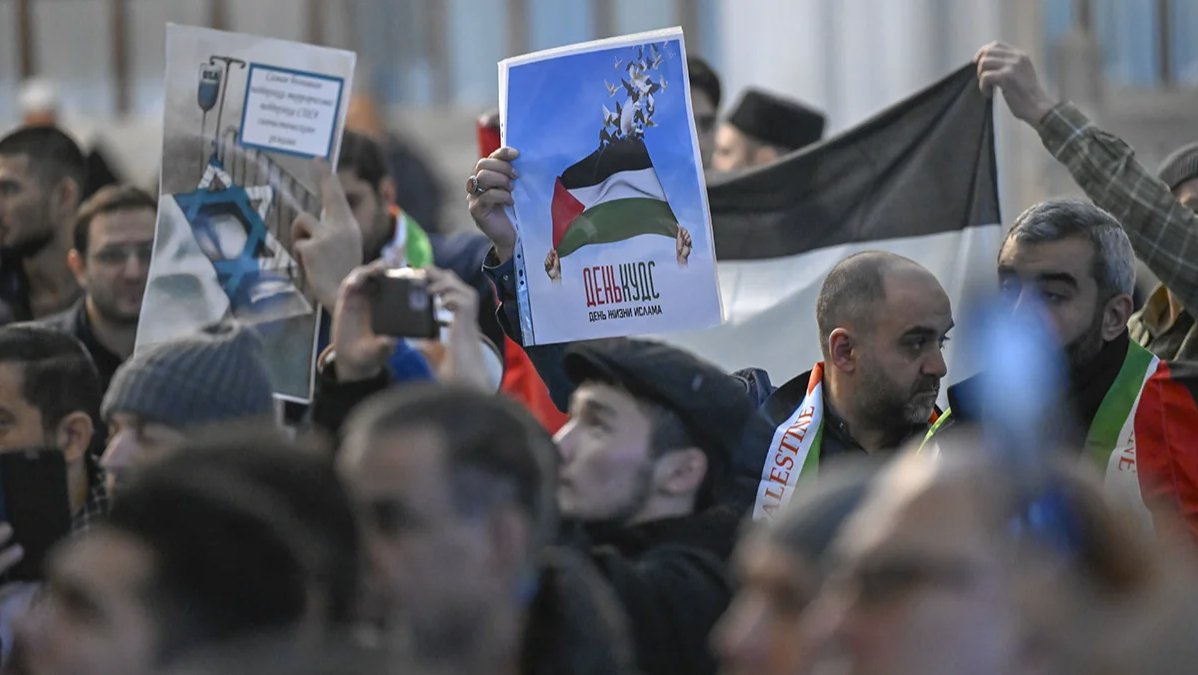What caused hundreds of people to storm an airport in the Russian North Caucasus “looking for Jews” last Sunday? For many analysts, Kremlin propaganda and the actions of Russian President Vladimir Putin, are directly to blame for the sudden outbreak of violence.
Denis Sokolov, a social anthropologist at The Center for Strategic and International Studies in Washington DC, agreed to share his thoughts on the origins and implications of the unrest with Novaya-Europe’s Farida Kurbangaleeva.
FK: In your view, what really caused the riot at Makhachkala Airport? Are people in Dagestan so incensed by the fate of the Palestinians that they decided to turn on the Jews?
DS: I think there are many reasons, but the first thing to say is yes, they are incensed as Palestine is traditionally a trigger for Muslims. One’s attitude to the Palestinian issue and the State of Israel is part of Islamic identity. The same thing applies to your view on the conflict in Syria, where a huge number of Russian-speaking Muslims went to fight, and to the violence against the Rohingya minority in Myanmar and the Uyghurs in Xinjiang, northwest China. So, in effect, this was quite a predictable reaction.
Abdullah Kosteksky, the spiritual leader of the jihadist organisation, Caucasus Emirate, who is from Dagestan, has espoused a radical position that doctrinally justifies violence against Jews and the State of Israel, which he thinks should not exist. This is perceived as the Muslim position, and in many respects it is.
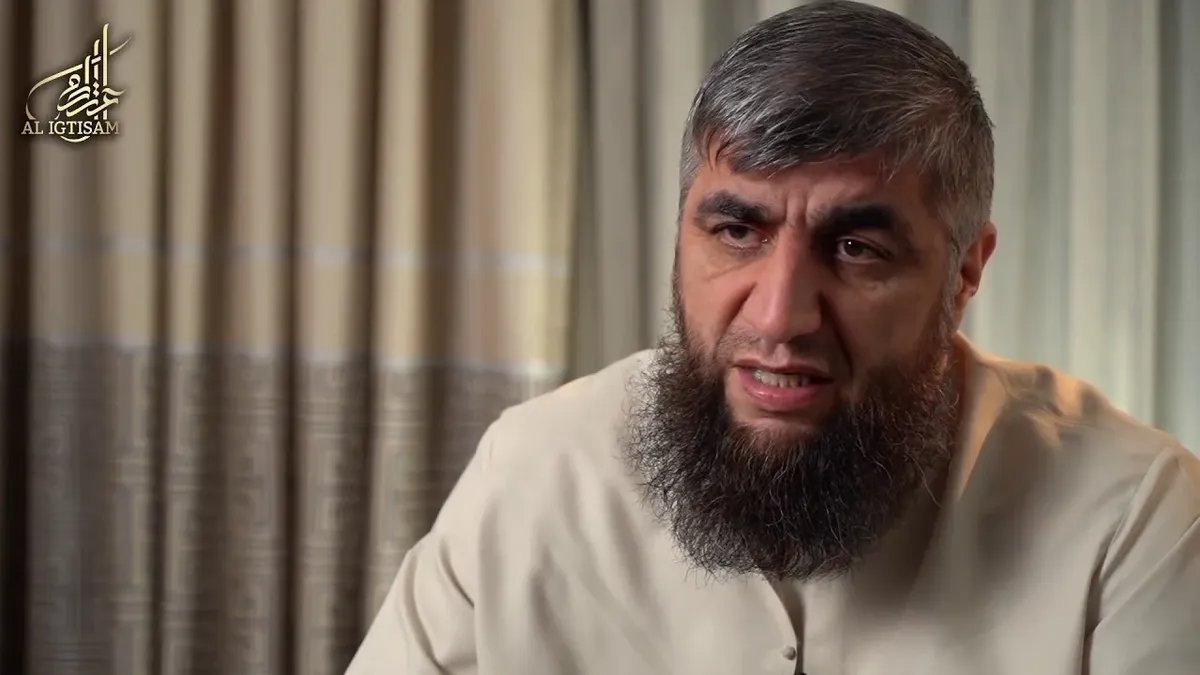
Abdullah Kosteksky. Photo: hudarus1789 / YouTube
FK: But other Muslim regions didn’t flare up like Dagestan.
DS: What do you mean by "flare up like Dagestan"? The number of people who went to the airport is estimated at 300. Maybe there were more. But Dagestan saw 5,000 people turn out for rallies organised by Islamist political organisation Hizb ut-Tahrir in the early 2010s, for example. Anti-mobilisation protests have also seen far greater numbers. So I wouldn’t view this as some kind of exceptional mass protest for Dagestan.
FK: Another interpretation of events sees this as the people of Dagestan unconsciously expressing a desire for justice, because most of those killed in the "special operation" in Ukraine are from Dagestan, and people want to show their discontent.
DS: Let’s not draw false conclusions. The potential for protest in Dagestan and other areas of the Caucasus isn’t solely about those who have been killed in the "special operation". This has been brewing in Dagestan for a long time. It’s just that any sign of protest has been brutally repressed. The same applies to the other republics in the North Caucasus: Kabardino-Balkaria, Karachay-Cherkessia, Ingushetia and Chechnya.
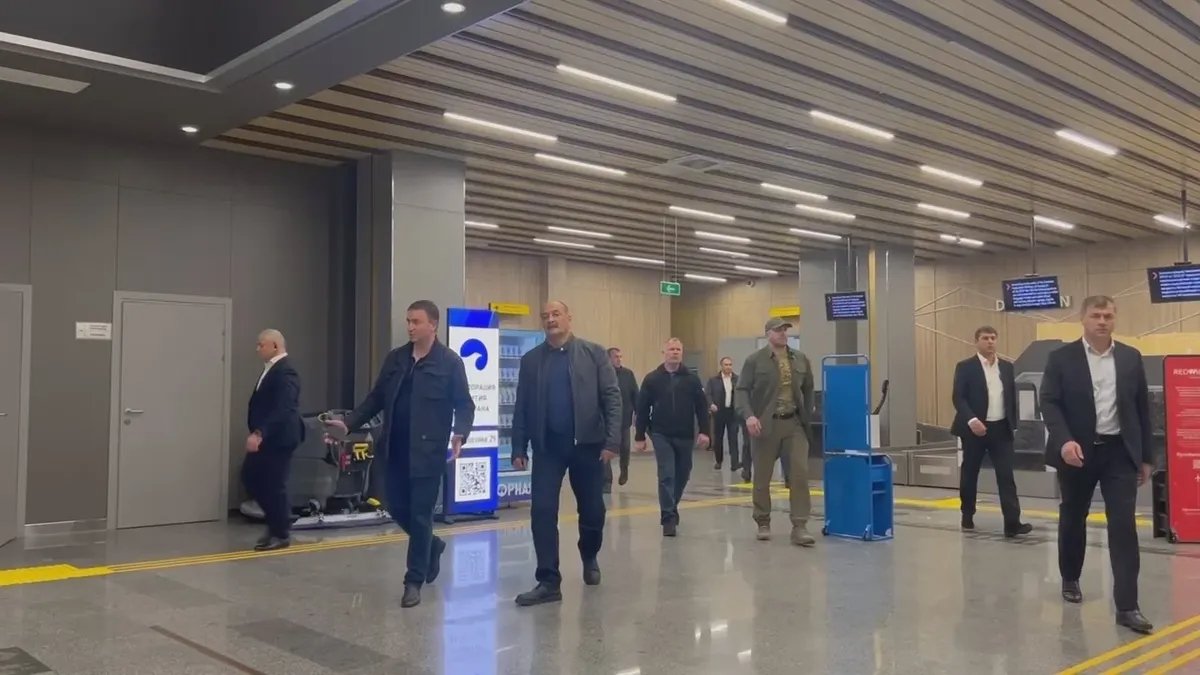
Governor of Dagestan, Sergey Melikov, inspecting Makhachkala Airport after last Sunday’s unrest. Photo: Government of the Republic of Dagestan
In these regions, society is suppressed into submission and political pluralism and civic activism have been quashed as religious extremism and terrorism. There was a time, after the Second Chechen War, when both the local and federal authorities effectively waged war on Dagestan’s Salafist communities. Some of these turned into a real armed underground. Many practising Muslims were basically criminalised, discriminated against by so-called preventive registration lists and detentions during Friday prayers.
This faded into the background after thousands of Russian Muslims joined the Islamic State in 2014–2016, as what was left of the armed underground went to Syria and was destroyed there. Before that, the confrontation between traditional Sufi Islam, to which the muftis subscribed, and the Salafi Islam, to which most of the young people in Dagestan, Chechnya and other republics in the region had converted to in great numbers in the mid-1990s, had been at the forefront in the North Caucasus for a decade. The confrontation became a way for regional elites to suppress the opposition, because traditional Sufi Islam had for some time been losing ground to these new, more competent preachers.
Gradually, the armed underground began to play the role of organised crime. This suited Moscow, which could claim any intervention in the North Caucasus was justified in the fight against terrorism and extremism.
FK: So anti-Semitic sentiments are just an excuse?
DS: That would be oversimplifying it, because, as I said, the anti-Israeli position is doctrinal and part of a religious identity. But there is a desire to protest. During the COVID pandemic in Dagestan, for example, there was rather sharp social criticism of the regional government. They felt that they could get away with such criticism, and immediately seized the chance. Putin also played an important role with his comments on the Israel-Palestine conflict, as did the fact that no Muslim can side with Israel. It’s black and white.
A neutral observer can say that Hamas carried out a terrorist attack and must be neutralised, but also that the bombing of civilians in Gaza represents excessive and indiscriminate force. But for a Muslim, there can be no objective assessment. For them, only one position is allowed, namely, playing down the terrorist nature of Hamas and focusing on the civilian victims in Palestine. You can’t, as a Muslim, be of the view that Hamas carried out the attack and therefore Israel’s response is inevitable.
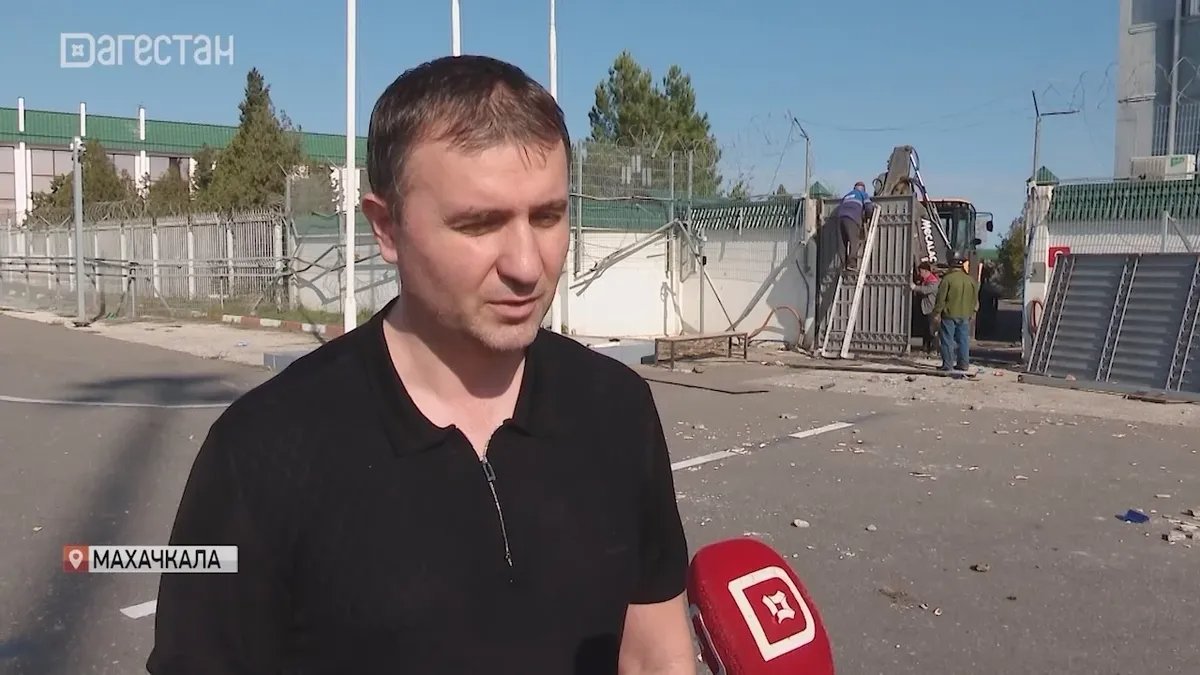
Said Ramazanov, director of Makhachkala Airport. Photo: t.me/RGVKDAGESTAN
FK: To what extent is Putin, who has repeatedly made anti-Semitic comments, responsible for what happened in Dagestan?
DS: I would say he bears responsibility regardless. He made it clear that this was a sanctioned protest, non-Jews could spew their hatred — which should really be directed at Putin himself — at Jews and that there would be no repercussions because this was practically government policy. This is, of course, a dangerous trend.
Although I can’t really see how the Russian authorities will be able to turn this situation to their advantage. They are now trying to win over and mobilise those Muslims who just yesterday were their opponents, the religious dissidents who have left the country and are now in Turkey, the Middle East, and Europe. The Russian authorities are trying to turn these Muslims into enemies of Ukraine and the West, because the West and Ukraine stand with Israel.
FK: Do you think the policy has been well thought through?
DS: I’m not sure, but Putin and his entourage are using it to create an "Islamic front". We cannot deny the huge harm caused to the civilian population from the operation in Gaza, so in that sense we can’t disagree with these people. And Russian-speaking Muslims, unwitting hostages of their Islamic identity, are now forced to be anti-European and anti-Ukrainian, as that is the anti-Israeli position. When things are black and white, you are either with us or against us.
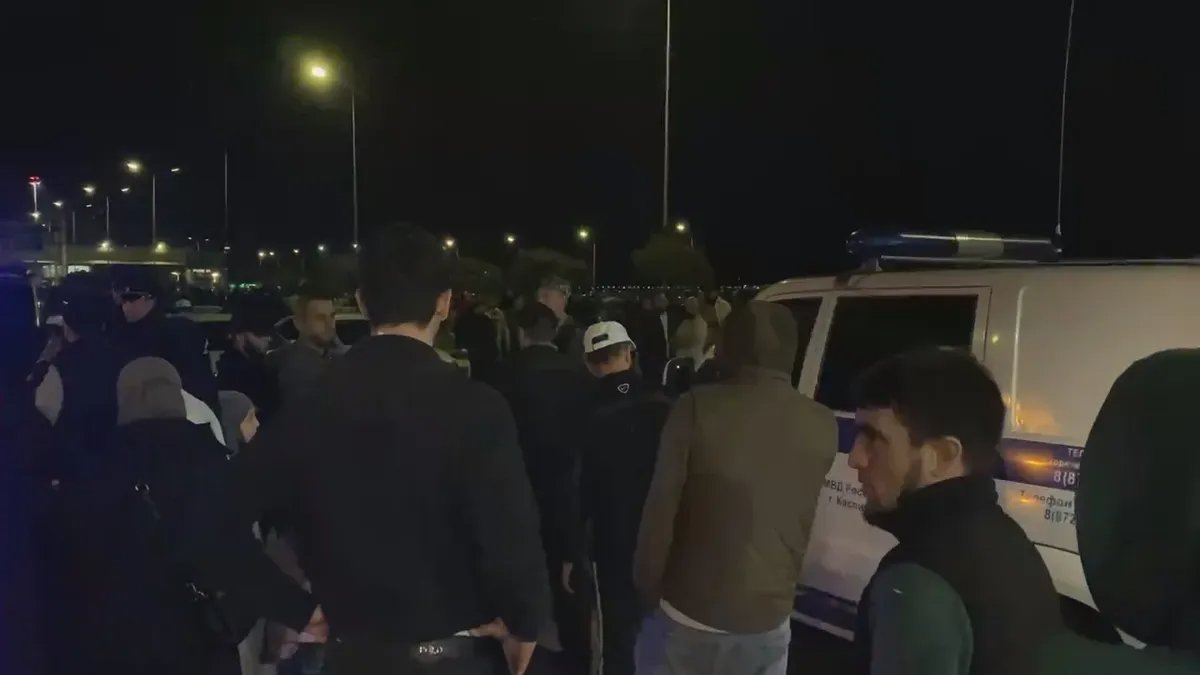
Police talking to protesters at the airport. Photo @askrasul / Telegram
I don’t know if Moscow will invest more in the airport story. It could escalate, and the protest could be used to turn Russian Muslims against the West and Ukraine. But someone will still have to be punished. People were injured and the airport was looted. But we can expect further attempts at exploiting this hatred. For the Putin regime, Muslims are now a very enticing prospect: they cannot support Israel, which means they cannot support Ukraine and the West.
FK: The situation must be alarming for Jews in Dagestan.
DS: Sadly, there are almost no Jews left. One local family that has a son in the Israeli army has been forced to leave the republic. But I still don’t think this story is a deep reflection on Dagestan. It was more a case of people letting off steam and a safe way to express some aggression and show loyalty both to their religious identity and the authorities.
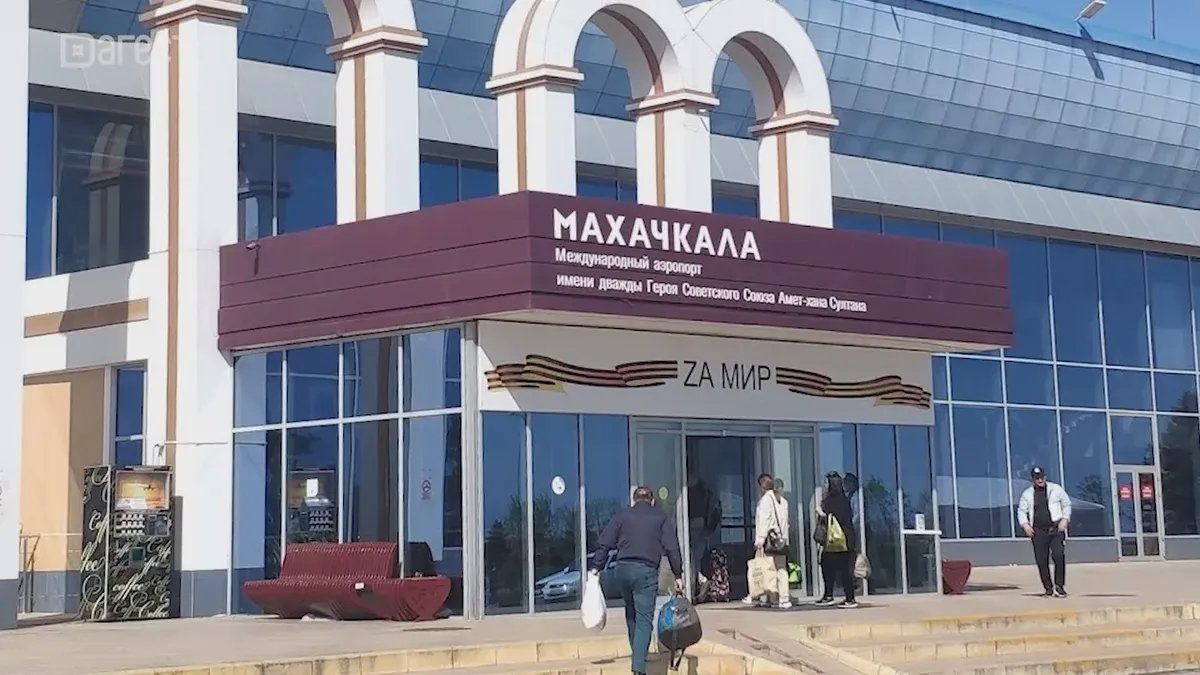
Uytash Airport, Makhachkala. Photo: t.me/RGVKDAGESTAN
FK: What about "non-Muslim" regions? Can you imagine anti-Semitic pogroms in areas where the population is predominantly Russian Orthodox?
DS: Unfortunately, I can imagine anti-Semitism becoming routine in Russia. There has already been routine, state-level anti-Semitism, by restricting opportunities and discriminating on the basis of ethnicity. And much of the Moscow and St. Petersburg community, which was intellectually and culturally immune to anti-Semitism, has now left the country. I’m not saying it will definitely happen, but we can’t rule it out completely.
If the war drags on, poverty will increase, and that will lead to ever-greater hatred for perceived enemies. And the enemy is never within. Nobody ever looks for the problem close to home. We look for the problem elsewhere.
On the other hand, while a rise in anti-Semitism is possible, it isn’t the Kremlin’s chief ideological weapon. Anti-Western and anti-Ukrainian sentiments are more relevant to the conflict Russia wants to promote.
FK: But could such unrest turn against the Putin regime itself?
DS: Yes, it looks more and more likely that this kind of unrest will eventually bring down the Russian Federation, because sooner or later it will turn against the authorities. After all, it’s not the Ukrainians or the Jews that are the real enemy, despite the regime’s attempt to convince people they are. The real enemy is the current political class itself, its thieving bureaucrats and an out-of-control police force.
At some point, it will become obvious to everyone. You can hide from peaceful protests as long as you have well-fed Russian National Guardsmen on your side, but they won’t be able to save you from popular unrest as they’ll be involved themselves.
Join us in rebuilding Novaya Gazeta Europe
The Russian government has banned independent media. We were forced to leave our country in order to keep doing our job, telling our readers about what is going on Russia, Ukraine and Europe.
We will continue fighting against warfare and dictatorship. We believe that freedom of speech is the most efficient antidote against tyranny. Support us financially to help us fight for peace and freedom.
By clicking the Support button, you agree to the processing of your personal data.
To cancel a regular donation, please write to [email protected]
